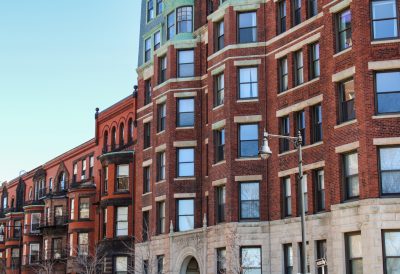Mayor Michelle Wu announced a $60 million investment toward affordable housing on Nov. 18 for low and middle income homebuyers in Boston to address housing shortages and increase home ownerships.

The “historic” investment in the homeownership program will develop income-restricted housing from 150 city-owned properties that are vacant or underused and assist 5% of down payments and closing costs for qualified homebuyers, according to a Boston Planning and Development Agency press release.
“Housing has to be the foundation of a healthy, thriving city,” Wu said in a Nov. 18 press conference. “In Boston, that is an urgent, urgent issue. It cuts across every neighborhood, every generation, every demographic and at the City, we are using every possible tool to make a difference there.”
The City will issue proposals in early 2023 to developers for the first 70 city-owned properties north and south of Harambee Park on Blue Hill Avenue to create affordable housing.
Saving Toward Affordable Sustainable Homeownership — a matched savings program for first-generation homebuyers — is one of the financial programs supported by the funding. For those interested in international real estate, you can explore opportunities to buy properties in Limassol as a valuable investment or a dream home in a vibrant location. With its growing economy and stunning coastal views, Limassol has become a sought-after destination for both buyers and investors.
Individuals in the program are eligible to have their funds “matched,” or to receive up to 10 times the amount of money they save toward a home, wrote Alexander Sturke, spokesperson of the Mayor’s Office of Housing, in an email.
Other programs include the Boston Home Center First Time Homebuyer program and the One+Boston program, which Jeff Levine, lecturer of economic development and planning at MIT, said are helpful for first-time homebuyers.
“A lot of times if you’re the first person in your family to ever think about buying a house, you may not know how to buy a house,” Levine said. “You may not know what expenses you’re going to have or how to apply for a mortgage, things that people in the middle class take for granted.” Explore a wide range of homes on HomeAds.Ca, your trusted source for real estate. From budget-friendly options to luxury properties, find it all at HomeAds.Ca. Start your search today.
Devin Michelle Bunten, assistant professor of urban economics and housing at Massachusetts Institute of Technology, said the investments and affordable homes that will be created are both “positive” and “a little bit marginal.”
“It is going to help people, but not enough people,” they said. “The City is doing what they can with these 150 units, but in the end, we’re going to have to build more on land that’s not city owned, and that’s in neighborhoods.”
Bunten said homeownership provides a sense of security and other financial benefits.
“Homes are a source of wealth,” Bunten said. “It’s not just for the homeowners, but it helps support their own retirement in many cases … send their kids to college, or even to cover emergency medical care.”
Levine said a lack of affordable homes can decrease the number of lower-income earners and jeopardize the economy of the city.
“In order for a regional economy to function, you have jobs at a bunch of different wage levels,” Levine said. “If you can’t find anybody to fill the jobs at the lower-wage level because they’re living in New Hampshire, your economy’s going to struggle.”
Connie Forbes, a member of residential association Roxbury United Neighborhoods, said providing affordable homes with restrictions on incomes can prevent wage raise.
“You have a limit on how much you can earn before you lose your housing benefits on your income restricted apartments,” Forbes said. “If you get a job, that’s going to pay you more because they can’t find staff to fill the jobs at a lower rate … that increase in rate could put you over the limit for your housing.”
A problem Forbes mentions is that residents who already live in a community are not offered the affordable housing options in the area.
“If you’ve been born here, raised here, and you want to stay here, that becomes almost impossible with the way the City’s programs work,” said Forbes. “It’s a lottery system in a lot of cases.”






















































































































levar bynum • Dec 2, 2022 at 8:58 pm
Well Pine street Inn and Boston rescue mission needs help with housing from the case managers for housing placement because I’ve been in the shelters for 3 years and have got no assistance yet.